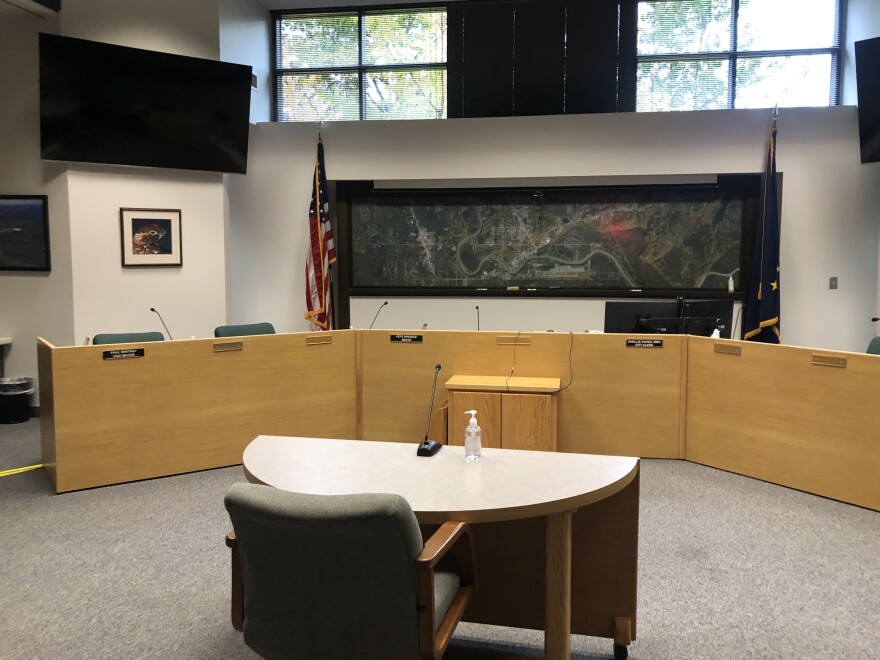Soldotna City Council members met with city officials Wednesday to review the city’s spending plan for the upcoming fiscal year. The suggestions would update revenue and spending forecasts, bump pay for city employees and make minor adjustments to the amount the city will spend on general services.
The City of Soldotna follows a biennium budget model, meaning the council approves a budget that covers two years instead of one. In the middle of the biennium, or at the end of the first fiscal year, council members meet to determine what changes, if any, they want or need to make. The budget the city currently operates under was approved by council members last April.
City Manager Janette Bower and Finance Director Melanie Imholte led Wednesday’s session. They said they’re expecting the city to both take in and spend more money than initially anticipated for the fiscal year that starts July 1. In all, the document forecasts more than $17 million in revenue and about $18.6 million in expenditures.
Council members get the final say on whether any of the budget changes proposed by the city are made.
One of the proposed adjustments is a 1.5% cost of living increase for city employees. That pay bump would apply to both union and non-union employees and is based on Anchorage’s consumer price index.
The city plans to spend about $740,000 on debt payments related to bonds taken out for major city projects. In 2010, voters gave the city permission to incur up to $2.5 million worth of bond debt to expand Soldotna’s public library. Then, in 2022, voters approved another $15.5 million for the construction of the Soldotna Field House.
No changes are being proposed to Soldotna’s sales tax of three percent, or to the city’s property tax rate of one half of one mill.
Sales tax brings in the most money for the city. But Bower said the amount for the upcoming year may be lower than expected. Sales tax revenue has increased for the city in recent years, but she says that’s now leveling off. She pointed to the COVID-19 pandemic’s disruption of travel plans as being one possible factor.
“A lot of people had Alaska on their bucket list and decided to change their bucket list order and come to Alaska,” Bower said. “So I think that we saw a lot of sales tax revenue during that time frame attributed to that.”
Mayor Paul Whitney asked whether the revisions incorporate the financial impacts of a new, four percent lodging tax that goes into effect next year. The tax applies to people who book lodging accommodations in the city, including hotels, motels, inns, lodges and short-term rentals like Airbnb and Vrbo.
Bower said the city doesn’t have enough data to predict how much money the tax will bring in because it hasn’t been implemented yet. For that reason, it is left entirely out of the budget presented to council members Wednesday.
Imholte said money the city gets through the tax will be put in a special fund, such as ones Soldotna has for its airport and utility.
“It’s going to be in its own fund,” Imholte said. “It’s a special revenue fund, kind of like some of these other funds are, and so we can put that in as of next year.”
The council briefly debated whether to keep in the budget a $12,700 contribution to the Soldotna Senior Center. Council members defunded the center when they approved the city’s budget last year after multiple residents expressed concerns over how the center operates.
Vice Mayor Lisa Parker said she thinks the senior center should make a direct appeal to the council and explains why the center should be funded again.
“If they want to be considered, I would think that they would come to the council and make that request and that we just not make an assumption to include them in the budget,” she said. “If you - if you want money, you’ve got to come ask.”
Changes proposed to the budget document will be considered by city council members during their June 12 meeting. A final vote on the changes is scheduled for the council’s June 26 meeting.



